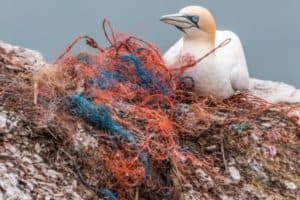Ceta Festival offers you facts about animal rights and environmental protection. This is acquired: we are at a stage of degradation of Nature so pronounced that it forces finally open my eyes. These are only “flagship” species that make the news. These are just gorillas, chimpanzees, elephants, rhinos, cetaceans that fix attention. Today are the birds, fields, and forests, insects, small animals talked. And we no longer talk about threats to their species, but there is the collapse of populations. You might be interested in read an article about how it all stared and about the organization of the festival.

Observation of an ecological disaster
The National Museum of natural history and the national Centre of scientific research have called these phenomena of ” massive loss ” near of the ” ecological disaster.” This observation is also made in the rest of Europe, particularly in Germany and Britain. During the last decade, the birds have lost between 1/3 and half of their force, and flying insects have declined from 75% to 80%. It is the same everywhere in the world. Sea, land, and air are depopulated.
Alarm calls have not yet ceased to be launched, for half a century. International conventions have been signed, commitments have been made. But the threats as recommendations have not been taken seriously; the necessary measures were not taken, makers and politicians have shown and demonstrated their interest in the issue.
What is it? How?
Should we worry about the scarcity of insects and curb general watering to shots of insecticides?
It should moderate over-fertilizing soils, renounce agrochemicals?
There should be balance artificial agricultural performance and chronic poisoning land and water?
Should we abandon the economy based on profitability in the short term from investments?
Semantic drift
The philosophy of the “protection of Nature” is based on the need to maintain the diversity of the animal as plant life forms, on the need to preserve their coexistence, in order not to undermine the overall balance that regulates the maintenance of life on Earth, on the rejection of totalitarian subjugation of Nature by the human species. Assimilate, understand this philosophy and accept that humans adapt his conduct request thoughts and knowledge beyond the reach of politicians, generally uninformed of the life sciences. It has been easier to enslave the notion of the general interest of Nature and focus on the best interests of humanity. From this comes the notion of “environmental protection,” a semantic drift innocuous, but the disastrous effects, as shown in the report of its results. In France, it is easy to find the evidence:
- in the list of the titles of the successive ministries that in were loaded,
- in writing and the terms of the regulations.
The first Department was established in 1971: the Minister was the Minister responsible for the Protection of Nature and the environment, modified in Minister of Protection of Nature and the environment from 1972 to 1974. The coexistence of the two areas, nature and environment was then observed: one is not the other.
- Nature conservation has a global character which includes ecosystems (air, water, land…), the living species (plants and animals, including the human species). She has a metaphysical character corresponding to the human need to live in harmony with all the components of the ‘ wilderness.’
- Environmental protection has a highly anthropocentric character: the ‘environmental’ policy that will result will be necessary and primarily dependent on the interests of the man.
Engaged in this way, departments have come and gone, little embarrassed to strengthen and display this anthropocentric. Since 1974, nearly 25 departmental names have come and gone, and responsibilities have varied, true Minister, Deputy Minister, Secretary of State, in departments to full title or attached to another such as the quality of life (1974 to) 1977) or culture (1977 to 1978). Certain Minister was even “delegated” to the environment the Ministry of equipment, housing, landscaping of the territory and transport (from 1986 to 1988): that is to say that ‘nature’ was far from the major concerns of its services!
“Natural resources management” and “sustainable development”.
With the awareness of the limited nature of natural resources, environmental policy will quickly focus on the goal of ” sustainable development ”, of managing the resources of the planet so that the present and future can continue to exploit them. This goal has been dedicated in the community by the Treaty of Maastricht.
Elevated to the level of an economic goal, ‘sustainable development’ has entered the Ministerial designation in 2002 (Ministry of ecology and sustainable development) and remained there until 2014, associated with according to the years energy and the development of the territory (2007-2009), transport and housing (2012), energy (2014-2017). The last owner and Minister of State, Minister of solidarity and ecological Transition: the title is undeniably the major concerns of the Government: energy and social solidarity.
But where are insects in there? And birds? And the rest of Nature?
The code of the environment itself is a reflection of the contradiction between the (economic) interests of man and Nature (vital) interests. It develops long lists of animal and plant species whose survival has to be protected, but to immediately, in its articles L110-1, L110-1-1 and L110-1-2, he spends and organizes sustainable development, in which he sees the way to make it last the exploitation of natural resources by future generations. But at any rate be reduced, the operation cannot continue beyond what the earth can provide. The sustainable is an illusion! Unless you consider that sustainable development can not depend on economic growth and that the race for economic development can lead to stagnation or even a recession, due to the exploitation of resources, of the degradation of environments and their pollution. Here you can read more about the Human Rights Film Festival.
Loss of species and “healthy environment.”
The evidence?
The maddening statistics of degradation in the number of animal species in the last decade and the sustainable development policy is officially implemented since 2002. And flying insects have 3/4 gone. Everyone can see: it is possible to drive 500 km by car and night, although a single bug crashes on the windshield, while sometimes had to play the rag every 100 km…

The disappearance of insects may seem trivial, but it is severe: flying insects are somehow the plankton of the air, and as marine plankton, they are at the base of the pyramid of food species.
Let’s go back to the environmental code, and see his article L110-2: ” laws and regulations organize the right of everyone to a healthy environment and contribute to a harmonious balance between urban areas and rural areas. The general principle on the quality of the ‘environment’ is immediately reduced to a regulator of human society role. If the fundamental human rights include a right to a healthy environment, should specify that it is that of the human environment, excluding the whole of the surrounding nature. The right to a “healthy environment” should not be reserved for humans: it must affect the other living species whose conservation is linked to the quality of their environment. The wild domestic animals, also have a right to an environment that complies with their needs. It is implied by the Berne Convention of 1979 on the conservation of wildlife and the natural environment of Europe and expresses the rural code, which lays down that the animal must be “consistent with the imperatives” conditions of detention “organic of its kind. It is an indisputable fact of the existence of the right of animals to a healthy environment.
The polluter pays
The healthy environment means that it is not a victim of pollution, especially chemical, be they voluntary (use of fertilizers and pesticides) or accidental. In the impossibility, or the will, to prevent their occurrence or to stop causing them, it has been decided to repair their damage: asked the polluter-pays principle, rule of law established by the Act of 2 February 1992, according to which fees resulting measures of prevention, reduction and repair damage must be left to one who bears responsibility. But the effectiveness of this measure depends on the technical, financial, or even criminal, consequences that should be sufficiently dissuasive so that the polluter is not tempted to prefer the punitive payment of pollution needs spending by its prevention. In fact, the polluter pays principle has ma major constitutive failure to justify nuisances are inevitable, and that they are available. This is the result the possibility to shift the costs and consequences to society, the polluter being attempted to recoup the costs of preventing or repairing the damage for sale. And in addition to force society to suffer damage. In sum, the polluter-pays principle is to create and monetize a right to pollute. But pollution is not a right. Defile heaven, stinking up the air, poison the rivers and the sea are not rights. Agreements on this issue, ignore the law. In any case, even, and especially, in a paid person cannot be accorded the right to dispose of the air and water.
Pollution is a defeat of progress. Haggle with her making him pay for permission to continue, is to enter into a psychosis of defeat.
This is the principle of the taint that is objectionable. Because she is an eco foul, it is staining itself which must be prohibited. The facts of “ecological damage” must be very severely punished criminal, and very heavily punished at the civil level. These are measures requested the Foundation right Animal, ethics and science since its initial creation in 1977. Specifically, The Universal Declaration proclaimed in 1978 , section 8-2: ” the slaughter of wildlife, pollution and the destruction of habitats are of biocides ,” i.e., crimes against life. This concept of widespread crime is currently resumed under the name “ecocide”, defined as an act of destruction or damage important to an ecosystem that is related to a man-made such as black tide factor, deforestation. Unfortunately, it does not appear to aim precisely the slaughter of wildlife, instead of the “biocide” of 1978. But at least one joined each other in the concern to preserve the NATURE, without stopping at the anthropocentric environment .
Because, Yes, truly, take care of the environment, social solidarity, the planning, sustainable development, it is not protect nature, and respect the planet Earth.

